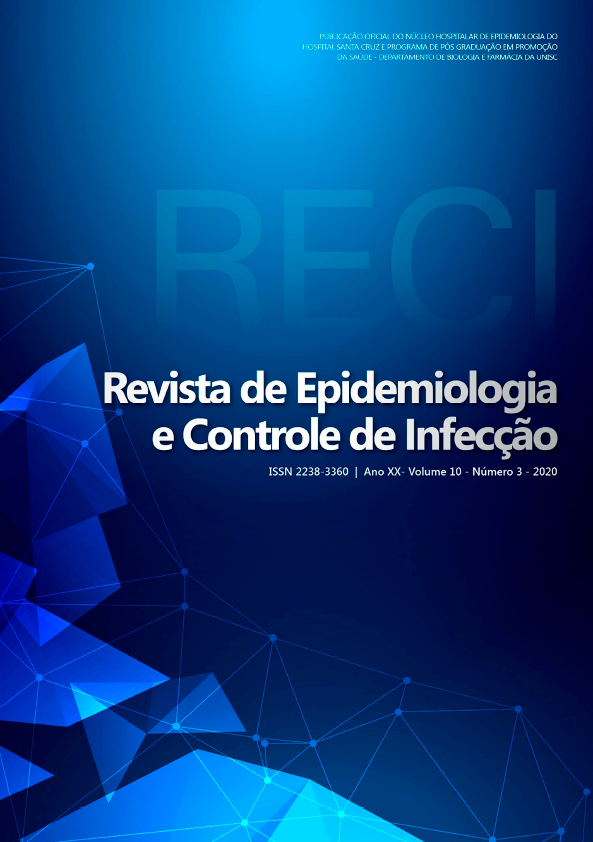Prevalence, antifungal susceptibility and virulence determinants of oral yeast species isolated from immunodeficient patients in Northeastern Brazil
DOI:
https://doi.org/10.17058/jeic.v10i3.15134Palavras-chave:
Virulence Factors. Oral Candidiasis. Acquired Immunodeficiency Syndrome. Yeasts. Candida.Resumo
Background and Objectives: Oral candidiasis has a common occurrence in immunocompromised patients. However, other emergent infections have become increasingly common. The aim of this study was to investigate the prevalence, virulence determinants and the antifungal susceptibility of yeast colonizing the mucosa of immunocompromised patients in Northeastern Brazil. Methods: Samples from sixty HIV-positive patients seen at the Specialized Service / Hospital Dia - Hospital Universitário Prof. Alberto Antunes from the Federal University of Alagoas were collected from subgingival sites and seeded on CHROMagar for presumptive confirmation of Candida spp. followed by PCR and sequencing. In addition, we tested virulence determinants, phospholipase and protease and evaluated in vitro the Minimum Inhibitory Concentration of antifungals amphotericin B and fluconazole. This project was approved by the Research Ethics Committee of the Center for Higher Studies in Maceió. Results: Approximately 63% of the patients were colonized by yeasts, with C. albicans as the predominant species, while non-Candida albicans species accounted for 49% of the isolates, with C. dubliniensis and C. parapsilosis being the commonest, but C. intermedia, Bullera penniseticola and Naganishia liquefaciens were also found. The virulence determinants protease and/or phospholipase were also produced by Candida spp. and some uncommon opportunistic isolates such as Kodamaea ohmeri, N. liquefaciens and Saitozyma podzolica. Furthermore, most of Candida spp. strains and some uncommon opportunistic species showed high values of minimal inhibitory concentration. Conclusion: Results obtained indicate that C. albicans continues to be the predominant species in oral cavity of immunodeficient patients and along with other unusual species may present high resistance to the antifungals tested.Downloads
Downloads
Publicado
Como Citar
Edição
Seção
Licença
Copyright (c) 2020 João Pedro Cavalcante, Gustavo Vasconcelos Bastos Paulino, Leonardo Broetto, Thayná Melo de Lima Morais, Sonia Maria Soares Ferreira, Patricia Valente, Melissa Fontes Landell

Este trabalho está licenciado sob uma licença Creative Commons Attribution 4.0 International License.
The author must state that the paper is original (has not been published previously), not infringing any copyright or other ownership right involving third parties. Once the paper is submitted, the Journal reserves the right to make normative changes, such as spelling and grammar, in order to maintain the language standard, but respecting the author’s style. The published papers become ownership of RECI, considering that all the opinions expressed by the authors are their responsibility. Because we are an open access journal, we allow free use of articles in educational and scientific applications provided the source is cited under the Creative Commons CC-BY license.


